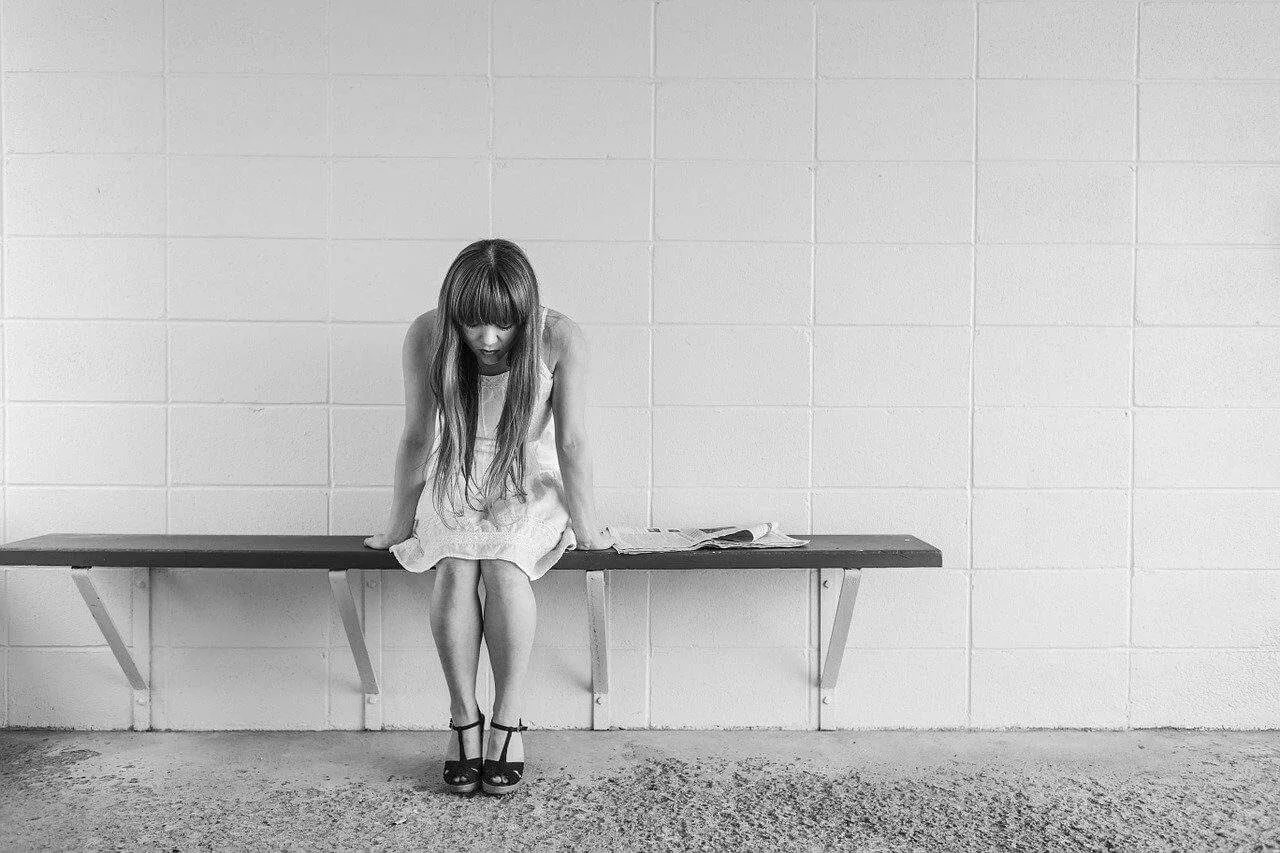Motherhood is a rewarding experience, but it can also be very stressful. Women have to deal with the challenges of work and family life, and often feel like they are juggling too many balls at once. This can lead to a lot of stress and tension.
Fortunately, there are ways to reduce stress and live a more relaxed life in your busy life to help you regain some control. In this blog post, we will explore some of the best techniques for reducing stress. We will also look at how mothers can manage the demands of motherhood while keeping their stress levels under control.
Stress isn’t just a burden on your mood – it can actually be bad for your health – both your physical health and mental health! So if you’re finding yourself getting overwhelmed at work, at home or even on the bus, it might be worth taking the time to figure out some ways to lower stress in your life.

During my many years working as a psychologist, stress was a common recurring theme in all age groups. Yes, even kids!
Most of us have some degree of stress in our lives all the time, simply because of the nature of how fast-paced life is these days.
Some of this we inflict on ourselves, but external factors also contribute significantly to the levels of stress we are feeling.
Stress Management: How to Identify Stress
Stress can negatively impact so many different areas of our lives – such as poor sleep leading to poor health.
Feeling overwhelmed to the point where we are no longer performing at our best ability. Becoming frustrated with our loved ones and negatively impacting our relationships. The list goes on and on.
Life has a way of turning upside down when you least expect it.
Everything can be travelling along smoothly, then all of a sudden you are hit with the unexpected and find yourself struggling to stay afloat. It happens to all of us from time to time, no matter how good your stress management skills are.
The first step in managing stress is identifying the situations that trigger your stress. Once you know what stresses you out, you can start to find ways to avoid or change those situations.
There are two types of stressors: external and internal.
External stressors are events or circumstances that are beyond your control, such as a natural disaster or the death of a loved one. Internal stressors are thoughts or emotions that cause you to feel stressed, such as worry, self-doubt or perfectionism.
You might not be able to avoid all external stressors, but you can certainly change how you respond to them. And by changing your response to internal stressors, you can lower your stress levels overall.
So how do you know if you’re stressed?
Physical Signs Of Stress
There are some physical signs of stress, such as tension headaches, stomach problems, difficulty sleeping and a decrease in sexual desire. You might also notice that you’re more irritable, anxious or depressed than usual.
Stress can raise or lower blood pressure, cause muscle tension, impact your immune system, reduce energy levels and speed up your heart rate. How it impacts your physical body will differ for each person and depend on your stress levels.
If you’re experiencing any of these symptoms, it’s a good idea to take a closer look at your stress levels and find some ways to reduce stress in your life.
Identifying Stress In Your Life
Sometimes it’s the loss of a loved one or serious illness that catches us off guard, or it can be something a little more ongoing and long-term building up, such as financial trouble, job satisfaction or relationship stresses. It can be anything really.
Most people don’t think about it until after it happens.
Even then, it is often a case of not knowing what support is available, where to go or who to seek advice from. This means the negative emotions and stress can build up and leave us struggling to cope with our everyday life and responsibilities.
As a psychologist, I have seen this first-hand in my professional experiences. I think we can all relate to these feelings in our personal lives. For me, I recall the extreme stress I felt when my workplace became somewhere I dreaded. The weight was lifted off my shoulders when I finished up, but for many situations, the solution is not that easy. Especially in the case of loss or illness.
Why Stress Management Is Important
The stuff that we used to be able to brush off suddenly feels like a lead weight on our shoulders as we attempt to push through. Each little thing becomes a huge thing and it can become really difficult to see the positives that lie ahead.
In fact, we often end up losing motivation even for the things we would normally love because the stress, grief and emotions are eating us up.
Check out these resources to further support your stress management:
- How to simplify your life and improve your wellbeing
- Planners for women to help manage your to-do list

Signs of Stress and Anxiety
The signs of stress are huge and varied. They also overlap strongly with the symptoms of depression.
The main thing is a change from the norm for the worse, but you may not even realise most of the signs are there. Sometimes someone else will notice them before you do.
Here are a few of the signs of stress to look for:
- Feeling unusually emotional
- Tired, unable to sleep or sleeping excessively
- Lack of patience
- Unfocused and unable to concentrate
- Changed appetite – increased or decreased
- Lack of interest in activities you normally enjoy
- Dread at the thought of doing certain things i.e. attending work, visiting a certain place
- Arguments with loved ones
- Impulsive behaviour
- Physical tension – tight shoulders, headaches, neck pain
- Dry mouth
Simple Tips To Help You Manage Stress In Your Busy LIfe
Below are some simple recommended ways to combat stress in your life:
1. Get Organised
One of the best ways to reduce stress is to get organised. This means creating routines and habits in your life that will make your life easier.
By being organised, you reduce the number of unexpected things that can happen to overwhelm you and will have more time for the things you enjoy and less time for stressors.
While you cannot completely remove stress from your life, you can make changes that will reduce it.
An organised life and an organised home will help you regain control back into your day and lower the anxiety that comes with trying to juggle everything on your plate.
2. Exercise
Exercise is a great way to release endorphins, which have mood-boosting effects. It also helps to reduce levels of the stress hormone cortisol.
So if you’re feeling stressed, go for a run, take a yoga class or go for a swim. Just 30 minutes of exercise a day can make a big difference in your stress levels. Any form of physical activity is better than none.
It might even be as simple as spending five minutes each hour away from your desk at work, just to stretch your legs and move your body.
It’s not possible for everyone to run a marathon each day, but you can probably still include more activity in your day than you realise.
Getting up 45 minutes earlier to go for a walk, taking the stairs instead of the elevator, and even getting up to speak with someone instead of just sending an email, can work wonders in the long term in adding more physical activity into your day.
3. Eat Healthy Food

What you eat can also impact your stress levels. A poor diet eating unhealthy foods can make you feel sluggish and low on energy, which can increase stress.
On the other hand, maintaining a balanced diet and eating healthy foods that are rich in vitamins and minerals can help improve your mood and reduce stress. Make sure to include plenty of fruits, vegetables, whole grains and lean protein in your diet.
4. Get Enough Sleep
Sleep is essential for our overall health and well-being. When we’re tired, we’re more likely to feel stressed and overwhelmed.
Aim to get seven to eight hours of sleep each night. If you have trouble sleeping, there are some things you can do to improve your sleep quality, such as avoiding caffeine before bed – too much caffeine is the enemy of sleep.
Also having a comfortable sleep environment, where your bedroom is dark and quiet can also help you to fall asleep better. It can be worthwhile investing in a good quality pillow to help improve your sleep quality.
It also helps to avoid screens before bed.
5. Take Time For Yourself

In the hustle and bustle of everyday life, it’s easy to forget to take time for yourself. But self-care is essential for reducing stress. When you take time for yourself, you’re able to recharge your batteries and feel more capable of dealing with stress
There are many different things you can do for self-care, and it doesn’t have to be time-consuming or expensive. It could be as simple as taking a relaxing bath, reading your favourite book, going for a walk in nature or taking a yoga class
Whatever you choose to do, make sure it’s something that you enjoy and that makes you feel good.
If you find yourself struggling to prioritise self-care, create a self-care list in a notepad or on your phone full of things that help you relieve stress.
I have a self-care list in the notes section of my phone so if I feel like I’ve been lacking in me-time, I can pick something from the list without having to think too hard about it. A bubble bath, putting on a face treatment or doing my nails.
Whether it’s a hike through the mountains or spending an hour doing a colouring-in page, knowing that you have chosen yourself and your health first for just a day or two will make you feel incredible.
Sometimes a single day is all we need to recharge our batteries and improve our wellbeing.
6. Take time to breathe
Yes, obviously you are breathing right now. But it’s probably not thoughtful breathing or deep breathing.
Chances are, you’re doing the same thing I am — letting your breath flow in and out however it will, expanding your chest with each inhale and contracting it with each exhale. That’s totally fine, but if you want to use your breath as a tool to calm yourself down, you need to be a little more intentional about it.
Try this: Place one hand on your chest and the other just below your navel, then exhale until all the air has left your lungs. Inhale slowly through your nose, letting your stomach expand first and then filling your chest. Reverse the process on the exhale — deflate your chest first and then your stomach. You should feel your hand moving with your breath — if you don’t, you’re probably still breathing into your chest. This kind of breathing has a relaxing effect because it slows down the heart rate and lowers blood pressure
Learn how to breathe meditatively – it can improve your focus, your energy and your mood, and it will only take mere minutes out of your day.
Focussed breathing really is an investment in your day-to-day performance. Not only that but it will calm you down, allow you to focus and can really clear your mind. There is a lot of power in a few deep breaths!
7. Connect With Loved Ones
Being social and spending time with loved ones is important for our mental health. When we feel isolated and alone, we’re more likely to feel stressed
Make time for the people you care about, even if it’s just a quick catch-up with a friend or family member over the phone or coffee. If you can’t meet up in person, there are plenty of ways to stay connected online, such as video calling or social media.
Never underestimate the power of a laugh with a loved one to feel good. Choose people who bring positivity to your life and lift you up!
8. Avoid Unhealthy Coping Mechanisms
When we’re feeling stressed, it can be tempting to turn to unhealthy coping mechanisms, such as smoking, drinking alcohol or overeating.
While these things might offer some temporary relief, they’re not sustainable in the long term and can actually make stress worse. If you find yourself turning to unhealthy coping mechanisms, try to find healthier alternatives that will help you cope in the long term.
Instead, utilise things that make you feel good as ways of bringing tiny joy to your day.
Simple things such as soothing music or putting your favourite upbeat tracks on while you clean the house. Adding certain scents can lift your moods, such as with a candle or essential oils. Spending time outdoors on a sunny day to get a vitamin D boost.
Each of these is a healthy way to deal with stress and improve mood without turning to unhealthy coping mechanisms.
9. Keep a Journal

A journal or stress diary is a great way to keep track of the things that are causing you stress, as well as the physical and emotional symptoms you experience as a result
Once you’ve been keeping a diary for a while, you might start to see patterns emerge. This can help you to identify the things that trigger your stress, so you can try to avoid them or find ways to deal with them more effectively.
A journaling practice can also be a useful tool when you’re meeting with a therapist or counsellor, as it can give them valuable insight into your stress levels and how they fluctuate over time.
RELATED – Gratitude and growth journals for kids
How Do I Know If I am Stressed?
Stress is something that impacts all of us at some point or other in life, and it can manifest itself differently for every individual. Learning how to identify when you are feeling stressed is important to your wellbeing. Some of the more common signs of stress include:
- Disturbed sleep
- Reduced or increased appetite
- Poor concentration
- Physical complaints such as headaches and stomach aches
- And of course, the constant worry and anxiety that comes with it
If you are finding yourself still struggling to find ways to manage your mental stress, please do get support.
There are services around the world aimed at helping us to improve our wellbeing, which includes both our physical and mental health, with stress being one of the most common struggles, simply due to the face-paced society we now live in.
Myths About Stress And Anxiety
Seeking professional support is not a sign of weakness. It does not mean you are ‘crazy’ and it can be beneficial for anyone, no matter your situation, your background or your personal reasons.
Stress, anxiety, depression, grief… they are huge, sometimes debilitating experiences that we do not have to live with long term.
Put your wellbeing and the wellbeing of your family as a top priority in your household as happy people are healthy, productive people too!
Check out these ideas for taking back control of your life:
- How to avoid feeling overwhelmed by decluttering
- Ideas to reduce cleaning time at home
- Ways to save money on home expenses
- How to get started with using a planner
- Mindfulness colouring pages for adults and kids
- How to create a home management binder
- 30 day decluttering challenge
- How to start decluttering your home
- Life admin tasks to help you feel more organised
Where Can You Go For Help?
Seeking professional support is available to everyone. You don’t need an official diagnosis to seek professional assistance.
It is there for everyone who needs some extra support or tools to help them through a difficult period in life or to work through negative emotions and stress. This is something many people fail to realise.
A great starting point is often your GP. They can provide referrals to more specialised services and also know of options that may best suit your budget.
You can also seek counselling services through local community services or public health care.
Here in Australia, there are many free services available, including online and phone counselling providers, which are easy to access. Similar services exist in most other western countries also.

If budget is not a concern, you can make an appointment with a local psychologist or counsellor who offers private services. This can be quite expensive but it means you have greater flexibility with who you see and how often, without the restrictions of public waitlists or limited availability.
In some cases, if you have private health insurance, you may even find that psychology and counselling services are included as part of your policy, either as part of your hospital cover or as an extras component.
What do you do to lower your stress? Share your go-to method below in the comments.
